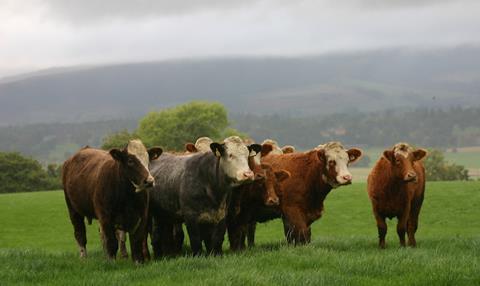The Association of Independent Meat Wholesalers (AIMS) has outlined its 10 key asks of the incoming Government.

AIMS set out its asks from the meat and poultry sector ahead of the upcoming general election, advocating for policies supporting the meat industry, promoting food safety and "protecting British consumers and producers".
The body said it was "committed to these principles" and will continue to advocate for policies that benefit agriculture, the meat industry, support the entire UK economy and ensure the "highest standards" of food safety and animal welfare and quality for British consumers.
1. Streamline regulatory oversight with a farm-to-fork body
AIMS has proposed the creation of a single, cohesive regulatory body that oversees the entire food chain from farm to fork to replace what it called a "fragmented system", which it said would "ensure more streamlined processes, better communication and a higher standard of food safety".
2. Overhaul outdated veterinary control regimes
It proposed a complete overhaul of the current veterinary control regime, as it said the science "is over 120 years old and is no longer suitable for addressing today's food safety threats". AIMS said that this would ensure controls were "relevant and effective" for contemporary food safety challenges, particularly those posed by modern supply chains and processing technologies.
3. Reduce bureaucracy and regulatory burdens
AIMS proposed Government remove regulatory burdens to improve efficiency and assurance while allowing "businesses to thrive without being weighed down by outdated and redundant regulations".
4. Negotiate a veterinary agreement with the EU
The Association suggested the establishment of a veterinary agreement with the EU to reduce costs and waste, as well as improve regulatory assurance, and AIMS said this would "facilitate smoother trade" while lowering compliance costs for exporters and "ensuring high standards of British meat are recognised and accepted in European markets".
5. Harness technology across the food chain
It also proposed the use of advanced technologies throughout the food chain, including blockchain for traceability, automated quality control and data analytics to "transform the industry into a more efficient and sustainable sector".
6. Modernise meat industry controls with qualified staff
The modernisation of control systems across the meat industry using appropriately qualified staff was also highlighted by AIMS, with the body suggesting the employment of professionals with experience in delivering official controls in abattoirs, "rather than relying on underqualified veterinarians".
7. Support the UK's agri-livestock sector
AIMS called for policies that support the sector to "ensure it remains competitive and sustainable in the face of global challenges".
8. Protect British consumers from low-standard imports
To prevent lower-quality products from "undermining the integrity" of the British food supply, AIMS said it was committed to protecting British consumers from imports of animal-related food products that do not meet UK welfare standards.
9. Simplify export promotion and eliminate redundant quangos
AIMS proposed the establishment of a single, effective commission to promote British exports of food of animal origin, which it said would "streamline efforts to boost international trade and open new markets".
10. Invest in education and training for the agri-livestock sector
A "substantial investment" in the educational sector to promote apprenticeships and training programs that prepare British workers for careers in the agri-livestock industry was also called for by AIMS, with the body stating that by building a skilled workforce, it could "support the future growth and sustainability of the sector".
Advocating for policies that support the meat industry

Dr Jason Aldiss, a spokesperson for AIMS, said: "We are of the view that whilst political parties and others publish manifestos in the run up to General Elections these tend to be quickly forgotten once the new Government has been formed.
"Our mission is to advocate for policies that support the meat industry, promote food safety, and protect British consumers and producers from day one of the new Government.
"What we believe is that all 10 key tasks be quickly delivered at next to no cost to tax-payers but most importantly to the benefit of the processing industry and trade.
"It is our intention that whoever forms the next Government we will be promoting our 10 key tasks with ministers at Defra, DBT, DfE, The Home Office and regulators such as the Food Standards Agency in order that our members' views are heard and acted upon."















